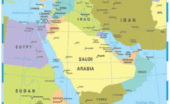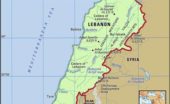Molly Minturn - My family is heartbroken to share that my father died in surgery on Monday, Feb. 10. It…
Wednesday Night #1589
Written by Diana Thebaud Nicholson // August 15, 2012 // Wednesday Nights // Comments Off on Wednesday Night #1589
The bombardment of Olympics and political campaign news has had an inexplicably stultifying effect, relieved only by the Mars rover landing, and sucking our creative juices.
The world – or at least the parts we are usually most interested in/stimulated by – seems to be in an advanced state of inertia having reached a number of crossroads with almost insurmountable barricades and few if any geographers with maps to guide us over or around them.
Election campaigns
Let’s start locally with the Quebec election campaign. Madame Marois continues to be as shrill as ever, often catering to the least attractive aspects of the voter’s psyche. Her proposal to limit access to English-language CEGEPs doesn’t even appeal to CEGEP students according to her own candidate Leo Bureau-Blouin (and why is he running anyway?) and the extension of Bill 101 to small business is heartless (and costly). Jean Charest seems to have very deep pockets (the QLP website offers a quick round-up of commitments) while at the same time promising to reduce the debt load for future generations. Meantime, the CAQ has finally put up an English website (on occasion somewhat dubious English as in “The Lastest Minute News”), with the Party platform laid out in full. Press releases, however, appear to be only in French. There are some debate-worthy suggestions coming from the CAQ – for instance increasing in-school hours to counter drop-out rate – but somehow there seems to be a whoops factor whenever one is introduced (the latest example being the comparison with Asian attitudes towards education).
Healthcare is a predominant issue (as it should be) with a medical doctor as spokesperson for each of the 4 major parties. Is this a first?
There appear to be more and more anguished Liberal voters and a growing sentiment that the CAQ is ‘not so bad’, while Robert Libman is encouraging Anglo voters to send a message to the PLQ by voting for François Legault’s candidate in ridings where there is no danger of the PQ being elected. Are we looking at a minority government? Would that be a good thing?
U.S.
Mitt Romney’s selection of Paul Ryan as his running mate is not altogether a surprise and certainly pleases the Tea Party wing (as well as many Democratic strategists for quite different reasons). We should now expect a campaign focused much more on the economy and the opposing plans of President Obama and Mr. Ryan. We will see analyses from all the pundits, but here is (to us at least) an unexpected one, by John T. Harvey, Professor of Economics at Texas Christian University and published by Forbes:
… Obama, et al., have the general idea of what needs to be done (even if they are afraid to pursue it to the degree necessary). Obama mostly, if not completely, gets the fact that any real solution must involve the government and the recovery of the middle class and that our current woes are not a function of overregulation and oppressive taxation. No so, Mitt Romney and new vice-presidential running mate, Paul Ryan. I have already argued that the latter’s proposed budget is an absolute nightmare (The Ryan Budget: A Mistake of Historic Proportions). It is premised on the existence of a fantasy world within which entrepreneurs, despite the decline in sales that would follow budget cuts, suddenly increase hiring and investment because they have been able to throw off the shackles of government interference. I don’t know any other way to say it–this is idiotic. A reduction in spending by any sector in the macroeconomy will reduce revenue in the private sector and thus make our predicament even worse.
For more about Mr. Ryan, here is the ultimate cheat sheet:
We read the Paul Ryan New Yorker profile so you don’t have to
With Mitt Romney’s Saturday announcement of Rep. Paul Ryan (R-Wis.) as his vice presidential running mate, there isn’t a story more indispensable to understanding the new member of the GOP ticket than Ryan Lizza’s recent profile of him in the New Yorker. The story tracks Ryan from his youth, through his early days as a rank-and-file member of the House, to his emergence as a leading voice in the Republican Party. But we know you’re busy. So we’ve read the story and plucked out the most telling passages
In Sesame Street fashion, the Republicans seem to have decided appropriately on The Letter R – we have Republicans Romney and Ryan attempting to wrap themselves in the Reagan mantle while trying to extricate Mr. Ryan from the Ayn Rand camp.
Reactions anyone?
Footnote: CBC offers some fascinating historical trivia about past U.S. vice presidents.
The Olympics – what to say that has not already been said? London put on a great show from every point of view; athletes, audiences, Royals and politicians all seem pleased. Even the IOC’s Jacques Rogge, despite his zombie-like delivery, gave a seal of approval. Whether the aftermath will prove to be beneficial to Britain’s economy will be much debated for some time, but the bread and circuses approach may have been just what the public needed to get it through the country’s economic doldrums.
That said, we are thoroughly bored with medal counts and calculations of how much money Canada and other countries invested per athlete. Could we not, please, take pride and pleasure in the personal bests of all the athletes and celebrate the achievements of some of the smaller countries and economies – Uganda’s gold medal comes to mind, or the touching story of Guor Marial, the marathoner from South Sudan without a country. Yes, let’s invest in our athletes and encourage the promising ones, but PLEASE stop the endless comparisons that demean the efforts of not only Canada’s Olympians, but those of all participants. [In a somewhat related matter, we might also ask if the efforts of Dmitri Soudas as Communications Director of the Canadian Olympic Committee had a noticeable – to you – impact on the coverage of the Canadian athletes.]
Syria continues to be the chief trouble spot. Former Prime Minister Riad Hijab, said in his first press conference that the Bashar al-Assad government is near collapse, but there is no indication that the government plans to halt the slaughter or step down. A very different view of the Syrian crisis is presented by Veracity Voice (thank you, Ron Robertson) in Syria’s “Liberated” Future: Ethnic-Religious Cleansing and Genocide It took over a year but suddenly the Syrian war isn’t so black and white, good guys versus bad guy. The Syrian government is by no means to be glorified, but the utter devastation that is being brought to the country was done so on a false premise, by foreign backers — Saudi Arabia and the U.S. — who wanted nothing except to see the country annihilated so that Iran would be isolated and easier to topple.
Egypt’s new president startled the world over the weekend by acting far more quickly than expected to reduce the pervasive influence of the military – does this indicate a more aggressive role for the Muslim Brotherhood, or simply a necessary house-cleaning?
Europe & the euro
On Project Syndicate, Christopher T. Mahoney, former Vice Chairman of Moody’s, asks whether the ECB is about to be Hijacked; while according to Spiegel, Investors Prepare for Euro Collapse — Banks, companies and investors are preparing themselves for a collapse of the euro. Cross-border bank lending is falling, asset managers are shunning Europe and money is flowing into German real estate and bonds. The euro remains stable against the dollar because America has debt problems too. But unlike the euro, the dollar’s structure isn’t in doubt; and Tony Deutsch points out that The Economist suggests that as the euro crisis intensifies and the potential bills for Germany mount, [Angela Merkel] would be imprudent not to be considering a Plan B. Drafted in utmost secrecy by a few trusted officials for the chancellor’s eyes only, this is what the memorandum outlining a contingency plan might say. Read on
Items you may have missed:
Foreign Policy’s 75 Most Dynamic Cities: More than half the global population now lives in urban areas, and there’s no going back to the farm. With China leading the way, today’s global cities are surging ahead in population and economic heft, powering the world economy — and posing some very difficult problems for governments.
In the category of efficient international cooperation of which we see so little: Wild Animals Help Kangaroos Break Out of Zoo — Aided by a fox and a wild boar, three kangaroos got through two fences and hopped to freedom from a wildlife park in Germany. They traveled 15 kilometers before a police posse closed in on them.
According to International Business Times, the 3-Martini Lunch Could Fix the Economy, Improve Your Work and Open New Horizons



